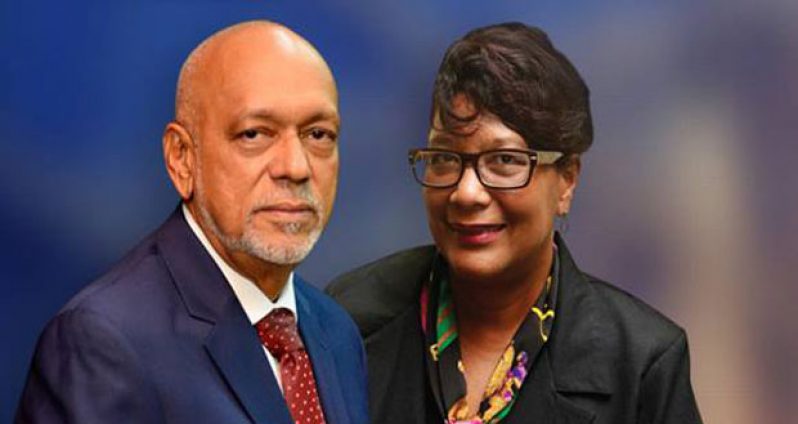THE incumbent People’s Progressive Party/Civic (PPP/C) has committed itself to taking several measures that will up the ante in the fight against corruption.These measures, representing continued efforts to fight corruption at all levels of government and society, were among the major highlights in excerpts of ‘Guyana 2.0’, the People’s Progressive Party/Civic (PPP/C) manifesto which was made public on Sunday.
“The PPP/C will continue the fight against corruption, and (will take measures) for strong standards of transparency and accountability,” the party assured.
Among these measures are: establishment of a Special Investigation of Corruption body with powers to investigate corruption and prosecute crimes of corruption; establishment of confidential complaints mechanisms to encourage people to report incidences of corruption; establishment of codes of conduct for public officials at all levels; strengthening laws and regulations with regard to bribery of public officers and officials; and support for and strengthening of the Human Rights Commission, Police Complaints Authority, Office of the Ombudsman, and the Integrity Commission.
Improved functioning of Parliament and the Judiciary, and appointment of the Public Procurement Commission (PPC) with the requisite Parliamentary support, whilst retaining Cabinet’s oversight role through its ‘no objection’ function, were also listed as other undertakings envisioned over the next five years of a PPP/C administration.
CONCRETE ACTION
Additionally, a report compiled by the Vanderbilt University’s Latin American Public Opinion Project (LAPOP), a premier academic institution that is a large, cross-national regional research project which undertakes surveys in the Americas and has over 30 years of experience, was released on December 3, 2014. It addresses ‘The Political Culture of Democracy in the Americas’, and speaks to the incidence of corruption in Guyana. That report finds, between actual incidences of corruption and mere perception of corruption, a huge gap measuring a whopping 84 per cent.
That 2014 Americas Barometer study is based on interviews with 49,738 respondents in over 20 countries. Nationally representative surveys of voting age adults were conducted in all major languages using face-to-face interviews in Latin America and the Caribbean, and Internet surveys were used in the United States and Canada. The sample size was over 1,500 Guyanese.
Other concrete action by the current administration has been viewed in a favourable light in sections of society.
Guyana signed the Inter-American Convention against Corruption in 1996, and ratified it in 2000. As recently as on June 16, 2011, Guyana has designated the Ministry of Foreign Affairs as its central authority to deal with matters related to the Inter-American Convention against Corruption.
Under its obligation, Guyana has had its first review in 2006; its second in 2008, and its third in 2011. In September 2011, when the third-round review of all the countries was completed, the committee decided that the fourth round would include visits to countries as well as a follow-up on implementation of the recommendations that were made during the first-cycle review in 2006.
As it relates to the United Nations Convention against Corruption, the areas addressed include prevention, criminalization, international cooperation, and asset recovery.
Guyana signed on to that Convention in 2003, and ratified it in 2008. Guyana has also taken steps to address the issue of corruption.
By becoming party to the two anti-corruption conventions, the country has undertaken obligations and expectations for enactment of the standards and rules that are central to both conventions.
By Vanessa Narine




.jpg)










